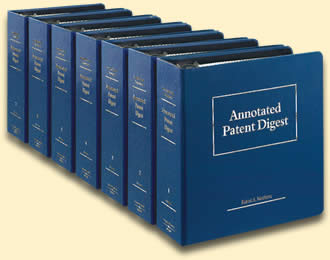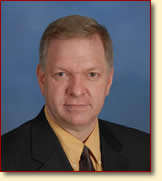About
Author of a widely used multi-volume patent-law treatise, and having over three decades of legal experience in the patent field, Mr. Matthews brings to his consulting engagements an extensive breadth of knowledge and understanding of the intricacies and complexities of U.S. patent law and the substantive and procedural aspects of litigating patent disputes in U.S. courts.
Corporate counsel rely on Mr. Matthews to help them objectively evaluate and strengthen outside trial counsel’s proposed court filings on patent-related issues, to save time and costs in getting answers to questions on U.S. patent law, and to further support trial counsel in drafting case-critical briefs, such as Markman briefs or briefs relating to dispositive motions. Trial counsel rely on Mr. Matthews’s consulting services to help strengthen briefs under tight time deadlines, devise and assess case strategies, and save costs and time in finding on-point legal authority to support patent-law contentions advanced in the litigation.
Mr. Matthews’ professional legal experiences cover a wide variety of technical disciplines, including mechanical arts, medical devices, heavy industrial equipment, computer-controlled devices, computer/internet-implemented methods and systems, pharmaceuticals under the Hatch-Waxman Act, consumer healthcare products, and biotechnology. He has assisted clients with patent matters before the Supreme Court of the United States, the Federal Circuit, the U.S. Int’l. Trade Commission, federal district courts throughout the United States and in BPAI, IPR and PGR proceedings before the United States Patent and Trademark Office.
Mr. Matthews extensively follows, analyzes, and writes on developments in U.S. patent law. He is the sole author of the Annotated Patent Digest, a multi-volume, 50,000 plus page work published by West since 2005, a Thomson-Reuters business, and available on Westlaw. The Annotated Patent Digest covers the full spectrum of substantive and procedural issues typically encountered in litigating patent disputes. His digest also includes a wealth of legal subject matter relevant to prosecuting patent applications before the U.S. Patent and Trademark Office. In rendering rulings on patent matters, judges from the Federal Circuit and district courts have quoted from and relied on the Annotated Patent Digest and other written works of Mr. Matthews. International commentators have also relied on the Annotated Patent Digest when discussing aspects of U.S. patent law.
Matthews’s Patent Jury Instruction Handbook, published by West from 2008 to 2014, provides a useful tool for crafting jury instructions for patent infringement actions.
Beyond the Annotated Patent Digest, Mr. Matthews has authored numerous patent-law articles for many publications including the National Law Journal, Law360, IAM Media, The Journal of Intellectual Property Law & Practice (Oxford Univ.), IDEA: The Intellectual Property Law Review, AIPLA Quarterly Journal, IP Law and Business, Global Intellectual Property Asset Management Report, the Virginia Journal of Law and Technology, Patent Strategy & Management, The Legal Times, and the IP Litigator.
Before pursuing a full-time patent-law consulting practice in 2007, Mr. Matthews spent over fifteen years working in several large, nationally recognized law firms, including Finnegan, Henderson, Farabow, Garrett & Dunner; Reed Smith Shaw & McClay; and Patton Boggs.
A graduate of the University of Virginia School of Law, Mr. Matthews is a member of the state bars of Virginia, North Carolina, Pennsylvania, and the District of Columbia and a registered patent attorney with the United States Patent and Trademark Office. He is also admitted to the Supreme Court of the United States, and the United States Court of Appeals for the Federal, Fourth and Third Circuits.
In addition to his legal experience, Mr. Matthews is a former Registered Professional Engineer, and holds a Master of Science degree in Mechanical Engineering from the State University of New York at Stony Brook and a Bachelor’s of Science Degree in Mechanical Engineering from the Virginia Polytechnic Institute and State University. Before pursuing his legal career, Mr. Matthews spent five years working as an engineer in the aerospace and nuclear industries. His engineering work focused on thermal and structural analysis, including structural analyses of the solid rocket boosters used with the NASA space shuttle, structural and thermal analyses of nuclear steam generators and automotive engine components, and thermal analyses of military aircraft components and avionics.


